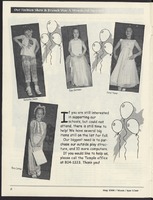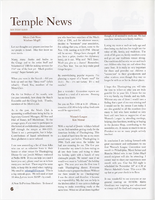Search the Special Collections and Archives Portal
Search Results
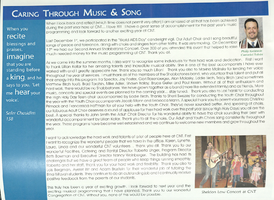
Annual report from Congregation Ner Tamid, 2009-2010
Date
Archival Collection
Description
Annual report from Congregation Ner Tamid, 2009-2010
Text

Interview with Stephen Craig Ronshaugen, November 26, 2004
Date
Archival Collection
Description
Text

Interview with Harold David Cunningham, March 11, 2004
Date
Archival Collection
Description
Text
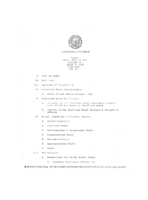
Meeting minutes for Consolidated Student Senate, University of Nevada, Las Vegas, March 6, 1984
Date
Archival Collection
Description
Text

Denise Lutey oral history interview: transcript
Date
Archival Collection
Description
Oral history interview with Denise Lutey conducted by Barbara Tabach on February 27, 2018 for the Remembering 1 October Oral History Project. In this interview, University of Las Vegas, Nevada (UNLV) campus officer Denise Lutey gives an account on the night of the October 1, 2017 mass shooting in Las Vegas, Nevada. She discusses the campus security measures taken at UNLV in order to keep the campus secure and create a safe space for any survivors. She mentions the people who were involved in providing safety and resources for the survivors, including the officers and student workers. Officer Lutey also discusses the general campus response as well as the various resources offered to citizens to help them be prepared for an emergency situation, such as the Active Shooter Training provided on campus.
Text
Ariana Saunders (The Corporation for Supportive Housing) oral history interview conducted by Kelliann Beavers and Elia Del Carmen Solano-Patricio: transcript
Date
Archival Collection
Description
From the Lincy Institute "Perspectives from the COVID-19 Pandemic" Oral History Project (MS-01178) -- Community organization interviews file.
Text

Transcript of interview with Judge Lee Koury by Claytee White, February 6, 2013
Date
Archival Collection
Description
Born in 1932 and raised in Los Angeles; mother was a housewife and later became a painter; mention of Olvera Street; Pio Pico first Mexican governor of California; Pico House; member of the Army; Deputy Sheriff; Mother Pauline Brown and father Lee Koury; Los Angeles County Sharon Tate; LaBiancas; Spahn Ranch; "the three girls on the comer" - Lynette Fromme, Sandra Good, and Nancy Pitman; Family - referring to the Manson case - Charles Mason, Robert Beausoleil, Susan Atkins, Steve Dennis Grogan, Patricia Kernwinkle, Mary Theresa Brunner, Bruce McGregor Davis, and Leslie VanHawten; Shorty Shay the person in charge at Spahn Ranch; mention of Polaroids mailed to prisoners that ended up being an important part of the Manson case.
Text
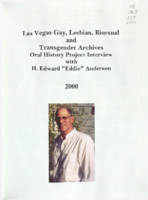
Transcript of interview with Edward "Eddie" Anderson by Dennis McBride, October 11-14, 2000
Date
Archival Collection
Description
Dennis McBride interviews Eddie Anderson (born 1946) about his role in advocating for LGBT rights, specifically his participation in the various political and social movements during previous decades. The interview begins with a discussion of Anderson’s background, including his experiences growing up in children’s homes and living with his grandparents. Anderson mentions marching with his grandparents for both workers’ and women’s rights as some of his first political involvements. Anderson also discusses his original aspirations for becoming a priest as well as his memories of meeting President John F. Kennedy during a visit to his high school when Anderson was student body president. Anderson then discusses travelling to the South, specifically in Selma, Alabama, during one summer while in high school in order to help register Black voters. Anderson then discusses his friendship with Nevada Senator Bill Raggio and his wife, and his joining of the U.S. Navy, where he met President Ri
Text

